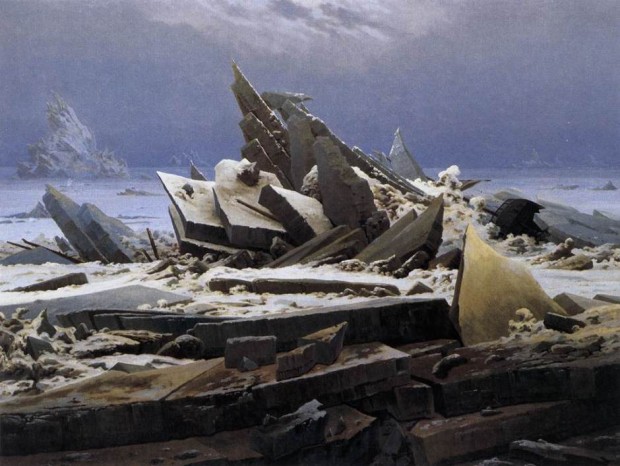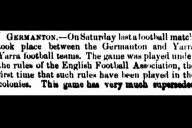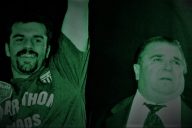The former coach of the Australian men’s national football team, Holger Osieck, sits alone in the shabby study of his holiday chalet in the small Tyrolean town of Mayrhofen. It is mid-morning and his wife, Elisabeth, is busy getting ready for another day of skiing the heavily powdered slopes of the Austrian Alps.
Holger will not ski today. Holger has not been skiing once in the time they have been here. He has, however, wandered into town occasionally for schnapps – he likes aniseed best – in the local tavern. The locals know and like him. They also know what he has been through recently. Out of deference they steer away from talk of football, but, for Holger, football is still very much on his mind.
On his desk is a pile of FIFA and Deutscher Fussball-Bund technical manuals, a framed photo of his wife, and some dusty old memorabilia collected from his years in football. He has been reminiscing. Indulging in what the Portuguese poetically refer to as saudade and what the Germans would call sehnsucht.
On the desk is a laptop, still packed with his many dossiers kept on Australian players and the Socceroos’ opponents. A copy of The Complete Works of Tacitus and a biography of St Boniface, the English missionary credited with bringing Christianity to the barbarian German tribes in the 8th century, also sit on the desk.
Holger has highlighted a quote: “In her voyage across the ocean of this world, the Church is like a great ship being pounded by the waves of life’s different stresses. Our duty is not to abandon ship but to keep her on her course.”
It is a quote he remembers from his school days in Duisburg.
Elisabeth knocks perfunctorily on the study door. She has started to worry about her husband.
“Holger, enough Nutella. You have almost finished another jar. Come skiing, please.”
A jar of Nutella, scraped to empty, sits on a side table.
Elisabeth takes the jar, shakes her head and kisses her husband’s forehead.
“Mulieres taceres in ecclesia,” Holger mutters, chuckling, as his dear wife, looking stunning in her ski gear, leaves the room. He will not go skiing today.
Holger has just finished watching a very poor quality online stream of the Australia vs Costa Rica match. The vision stuttered and often cut out. He laughed and thought, ‘It’s no different to how I had them playing.’
He was surprised at how detached he could be about watching his team. He bore no ill-will to the new coach, Ange Postecoglou, or any of the players. Not even really to the FFA or his old boss, Frank Lowy.
He thought of Brazil. He thought of being the head trainer of a team at the World Cup. Saudade. Sehnsucht. He thought of more Nutella.
He clicked a file called “AFC Cup-Uzbek” in a folder titled “Australia Match Summary” on his laptop. He read the report he had written for the match, an AFC Asian Cup semi-final from 2011 that Australia had won 6-0 against Uzbekistan. The team: Schwarzer, Wilkshire, Neill, Ognenovski, Carney, Valeri, Jedinak, McKay, Holman (Emerton), Kewell (Kruse), Cahill (Kilkenny).
Holger decided to call his old friend Berti Vogts, the Euro 96-winning coach who had been shafted by the DFB after a less than magnificent World Cup for Die Mannschaft in 1998. Vogts was, at least for now, in charge of Azerbaijan. This is what it had come to: Australia, Azerbaijan, where next?
A 0-0 draw with Kyrgyzstan following a 2-1 loss to Estonia had likely pulled the curtain on Vogts’s sojourn in Baku.
Maybe he and Vogts could get a gig in Brazil on a FIFA technical committee? Why not? It would be nice to see everyone again. Yes, he would call Berti and then Beckenbauer.
Surely, Der Kaiser could get this one last gig for his old friends?
But first, Holger would go into town for schnapps and some more Nutella.

















Come on baby, eat the rich… Friedrich the friendly ghost.